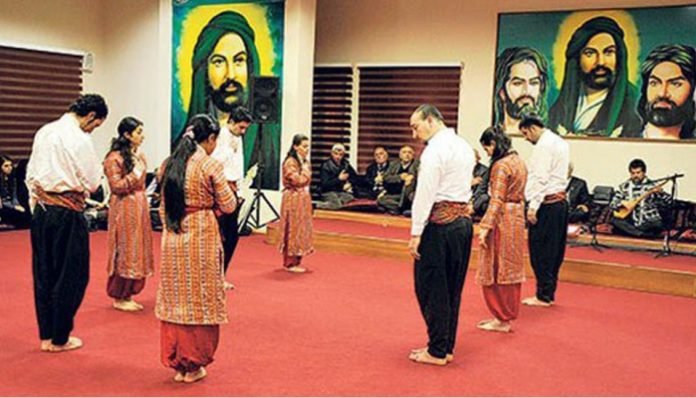Alevi organizations in Turkey are voicing strong opposition to a new K-12 curriculum proposal announced on April 26, citing concerns over the government’s ideological influence and the misrepresentation of Alevism, the Artı Gerçek News Website reported.
The new curriculum proposal, “Türkiye Yüzyılı Maarif Modeli” (Education Model for the Century of Turkey), has been open to public comment for a week. It came under heavy criticism due to overemphasis on religious education, particularly the concentration on Islam within the curriculum. Critics argue that this is against the secular constitution.
Mustafa Aslan, president of the Alevi Bektaşi Federation (ABF), criticized the new curriculum, saying it is “… a step towards transforming education into a system that pushes a singular religious ideology, regressive policies, and racism.”
The new curriculum is also criticized for introducing weighty topics such as military coups, warfare and death into elementary school education. Critics fear that exposing young children to such subjects could have a detrimental effect on their psychological well-being and development.
Alevi leaders have repeatedly expressed their concern that the situation of Turkey’s Alevi population is becoming increasingly precarious as the government of President Recep Tayyip Erdoğan has failed to fulfill its promise of granting them more rights to enable free practice of their beliefs and has imposed its own version of Islam on various segments of society.
Ercan Geçmez, president of the Hacı Bektaş Veli Anadolu Cultural Association, also expressed dissatisfaction with the current educational reforms under the Justice and Development Party (AKP) government.
“Our request was for the teaching of the history of religions, not to confine religious education to Sunni Islam and impose it on the entire society,” Geçmez said.
Alevis have historically been the largest religious minority group in Turkey, making up as much as 20 percent of Turkey’s 85-million-strong population. Incorporating Shiite, Sufi, Sunni and local traditions, Alevism is a strain of Islam that emerged in the Middle Ages.
Turkey has long denied the demands of Alevis for state recognition, and cemevis—a place of worship and community gathering for the followers of Alevism—are not officially recognized by the state.
Alevi groups accuse Turkey’s ruling AKP of removing education from its secular and scientific roots and crafting a curriculum that aligns with its ideological stance.
The Turkish government had launched an initiative called the “Alevi opening” in 2009, aimed at achieving a better understanding of the problems of Alevis through a series of workshops and enacting reforms based on that understanding. Yet, the government failed to follow the recommendations in a report based on the outcome of the workshops and only took some symbolic steps. Such promises as officially recognizing cemevis and changing the law regarding compulsory religious education classes were not kept.
Moreover, hate crimes against Alevi communities are common. Cemevis have been occasionally vandalized, with curses and other insulting words put on their walls.















